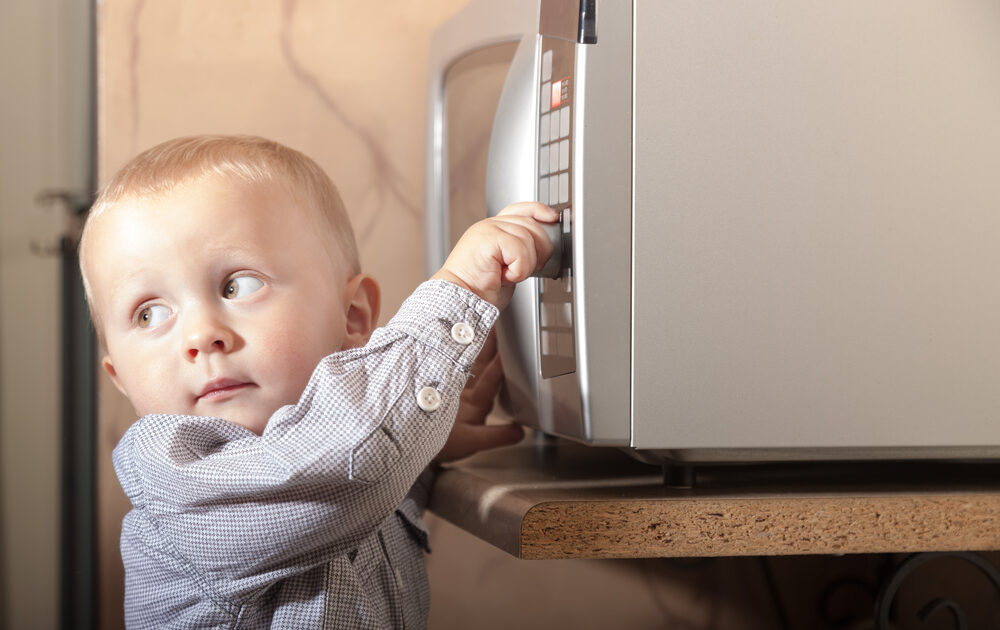Are Microwaves Safe? Science Puts Fears (and Myths) to Rest

Are microwaves safe? Chemists chime in with the final answer.
The microwave—known today as the quick and lazy way to reheat food—was introduced almost a half-century ago, and was initially touted as the must-have kitchen gadget of the future. It was finally here to save us from laborious, messy meal preparations with just a push of a few buttons, almost like having a personal robot chef.
The honeymoon didn’t last very long, however. And not just because microwaved food never tastes very good, but because of growing consumer fears over the health hazards of being exposed to microwave radiation and the depleted nutrients of food that’s been “nuked.” But the fears over microwave cooking may be a bit unfounded, says the American Chemical Society.
The nonprofit, which represents and supports the nation’s chemists, released a video on microwaving, with the hope of answering the “are microwaves safe” question once and for all.
According to the videos, radiation in this case, is distinct from radioactive. And that’s a pretty big distinction–the microwave radiates heat, not nuclear energy. In other words, nuking a burrito is not akin to your own personal Fukushima meltdown (what happens on the other side of that burrito with triple hot sauce though is another story).
The FDA is responsible for regulating the radiation emissions of microwaves, and according to the ACS, it’s a significantly low amount. “There has never been any research to show that microwave ovens can cause any long-term damage to people, so let’s just drop it, folks,” says the video’s narrator.
The video also debunks the myth about nutrient depletion, and says that microwave cooking is in fact one of the best ways to keep nutrients in your food. The narrator credits shorter cooking time and using less water (or other liquid) to cook the food, which can leach out the nutrients.
But does that mean you should send your stove out to the curb and start microwaving all of your food?
In his book “Cooked: A Natural History of Transformation,” author Michael Pollan and his family experiment with a microwaved meal as part of his investigation into the human relationship with cooking food.
While using a microwave is certainly less messy and time consuming than using the stove or oven, it’s not as convenient as we may think. Pollan points to two cumbersome factors: the time and the price.
In his family’s experiment, he noticed the price for microwavable meals was significantly higher than what could be made from scratch using the oven or stove. And for each person in his family (just three people) to cook their individual meals in the microwave, took nearly 45 minutes–about the same amount of time to prepare a meal on the stove that could be served to everyone at the same time. To wait for each meal to be cooked in the microwave meant the first meal was cold by the time the entire family could eat together.
There are other factors to consider too, particularly when microwaving food in plastic containers. Heat can make certain chemicals in plastics more volatile and increase your risk of exposure. Chemicals such as BPA (bisphenol-A) have been linked to numerous health issues in adults and children, and are common in plastic containers used in microwave cooking.
However, that doesn’t mean the microwave can’t serve a function as part of a healthy kitchen. Sales of microwaves have dropped by about 25 percent since 2000, which is perhaps due in part to more people cooking meals from scratch (on the stove or in the oven), which is not only healthier, but cheaper. And for those homes where microwaves still exist, they can be used to reheat or defrost your home-cooked meals. But when the microwave becomes a crutch for processed frozen burritos and TV dinners instead of real food, it may be time to pull the plug.
Find Jill on Twitter and Instagram
Related on Organic Authority
5 Tips to Avoid the Dangers of Microwaves
How to Live Without a (Gasp!) Microwave
What Lurks in Your Microwave Popcorn?
Kid with microwave image via Shutterstock

